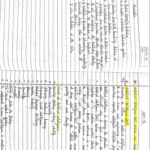Gaurav
M.Pharma (pharmaceutics) 1st sem
Jamia hamdard
Content
Definition
Goal
Reasons of outsourcing
Identification of appropriate CROs
Assessment of capabilities
CRO qualification
Pharmacokinetic site qualification
Definition
Contract research organisation (CRO) is an entity that
extends support to pharmaceutical, biotechnology and
medical devices industry in the form of research
services outsourced on a contract basis.
A CRO may offer such services like:
Biopharmaceutical Clinical & Biological assay
Clinical trial Pharmacovigilance
development preclinical research development
GOAL
Contract research organisation(CRO) provides much
needed service to the pharmaceutical sector. Full service
CROs offer a comprehensive selection of capabilities, while
smaller “niche’’ CROs may focus on a narrow segment of
services (clinical or analytical only)
All of these organization fulfill a need in that they provide
the services necessary for the approval of new clinical
entities or generic drug products. A sampling of these
services is included
Reasons of outsourcing
Many of the large pharmaceutical companies have in-
house capacity but some of which lack of in-house
capacity, skill deficiency and cost control. For example
many often have their own clinical and bioanalytical
units that provide full support for phase 1 studies.
However, even these internal resources can become
saturated due to the drive to develop more compounds
in shorter time interval
Unlike their larger counter parts, the smaller companies,
virtual firms and generic companies do not have the luxury
of their own dedicated clinical unit or full in-house
capabilities and are required to outsource their clinical
trials, including bioavailability (BA) and bioequivalence
(BE) studies.
Although generic companies have internal resources for
product development, manufacturing and release testing,
they do not have clinical and bioanalytical capabilities.
Identification of appropriate CROs
It is important that your CRO has validated corporate
procedures for all segments of clinical study conduct.
These procedures are used to ensure that all aspects of a
study, including but not limited to clinical conduct,
laboratory analysis, data management, biostatistics,
pharmacokinetics, and medical writing, are performed in
compliance with Good Clinical Practices (GCP),Good
Laboratory Practices (GLP), and other applicable
regulatory practices and guidelines
Assessment of Capabilities
1. Clinical capabilities
2. Bioanalytical capabilities
3. Pharmacokinetic capabilities
4. Timeline assessment
CRO Qualification
1. Due diligence
If the pharmaceutical firm has used the CRO in the past, they should
objectively evaluate their past experience with this CRO.
If the experience was good, the firm should identify those
components that were successful and insure that they are used for
their new study.
However, caution should be exercised and due diligence pursed if the
new study requires a different subject population or analytical
technique
Example:
A CRO may specialize in recruiting healthy male and
female volunteers, but may have difficulty in the
recruitment of postmenopausal females.
2. Clinical site qualification
The sponsor should conduct a site qualification visit. In
addition to a eGCP site audit, this evaluation should
include an assessment of the area in next slide;
3. Bioanalytical site qualification
Candidate CROs for bioanalytical laboratory work (for drug,
metabolite or biomaker assay) should also be assessed.
The company audit should also include cGLP compliance and an
assessment of the laboratory’s inspection history. Copies of the
inspection history with all FDA 483s and EIRs should be
reviewed
Laboratory project manager should be assessed for their ability
to coordinate all processes with client, clinic and
pharmacokinetic.
Finally, the CRO should provide written
documentation as to the content of the final analytical
report that should contain additional project specific
validation data to support BA/BE study
Pharmacokinetic site qualification
• The pharmaceutical firm should also qualify the CRO site (or
department) that is responsible for PK and statistical analyses and
completion of the final integrated report.During the pharmacokinetic
site audit, following areas should be assessed:
Qualification of pharmacokinetic and statistical personnel.
Validation of pharmacokinetic and statistical programs (usually SAS)
Compliance with 21CFR(code of federal regulation) Part 11. At the time
of this publication, full and complete compliance with Part 11 was not
being enforced. However, the CRO should have a written plan and
timeline for bringing all post laboratory functions into compliance
Reference
http://www.jli.edu.in/blog/what-is-a-contract-research-organization-cro/
Shargel.L, Kanfer.I, Generic drug product development (solid dosage form),
Scale up, post-approval changes and post-marketing surveillance page no.299
CONTRACT RESEARCH ORGANIZATIONS: AN INDUSTRY ANALYSIS
Maysoun Dimachkie Masri, Sc.D, MBA, MPH (Corresponding Author)
Assistant Professor, Department of Health Management and Informatics
College of Health and Public Affairs, University of Central Florida
HPA II, Suite 214,Orlando, FL 32816-2205
407-823-2359, 407-823-6138 (fax), E-mail: [email protected]










